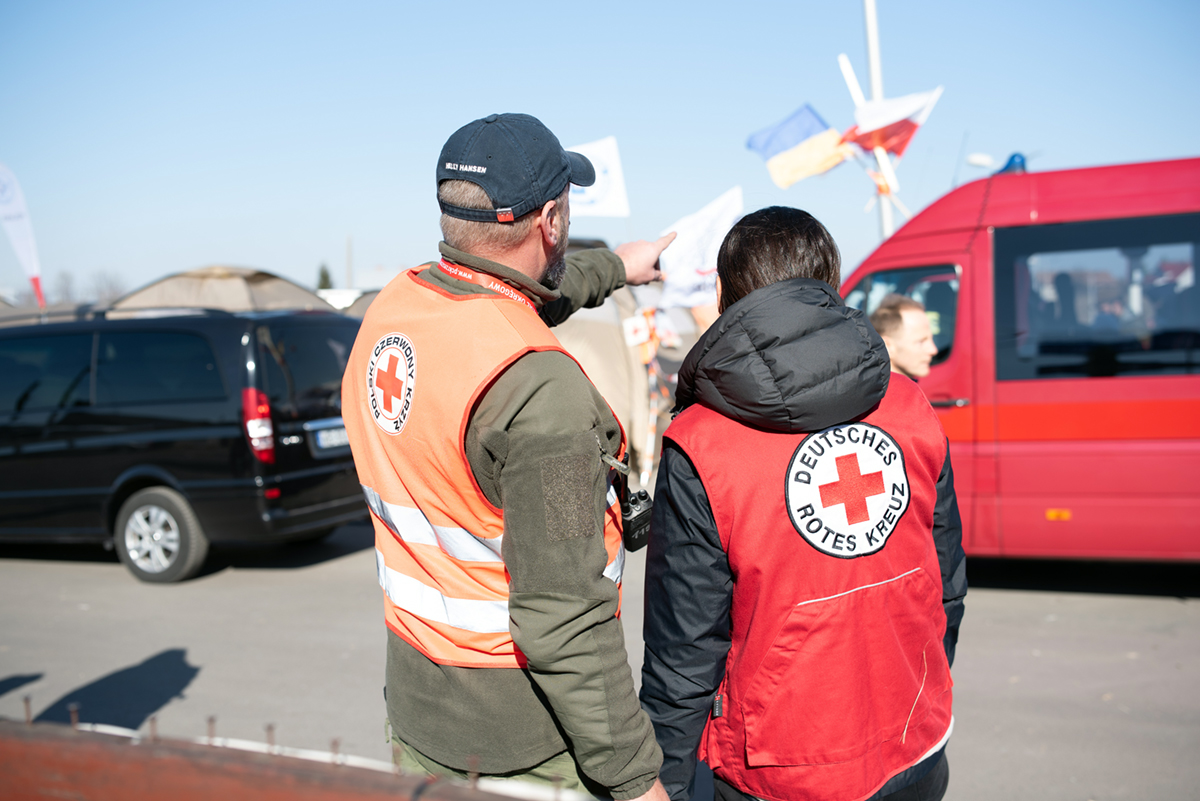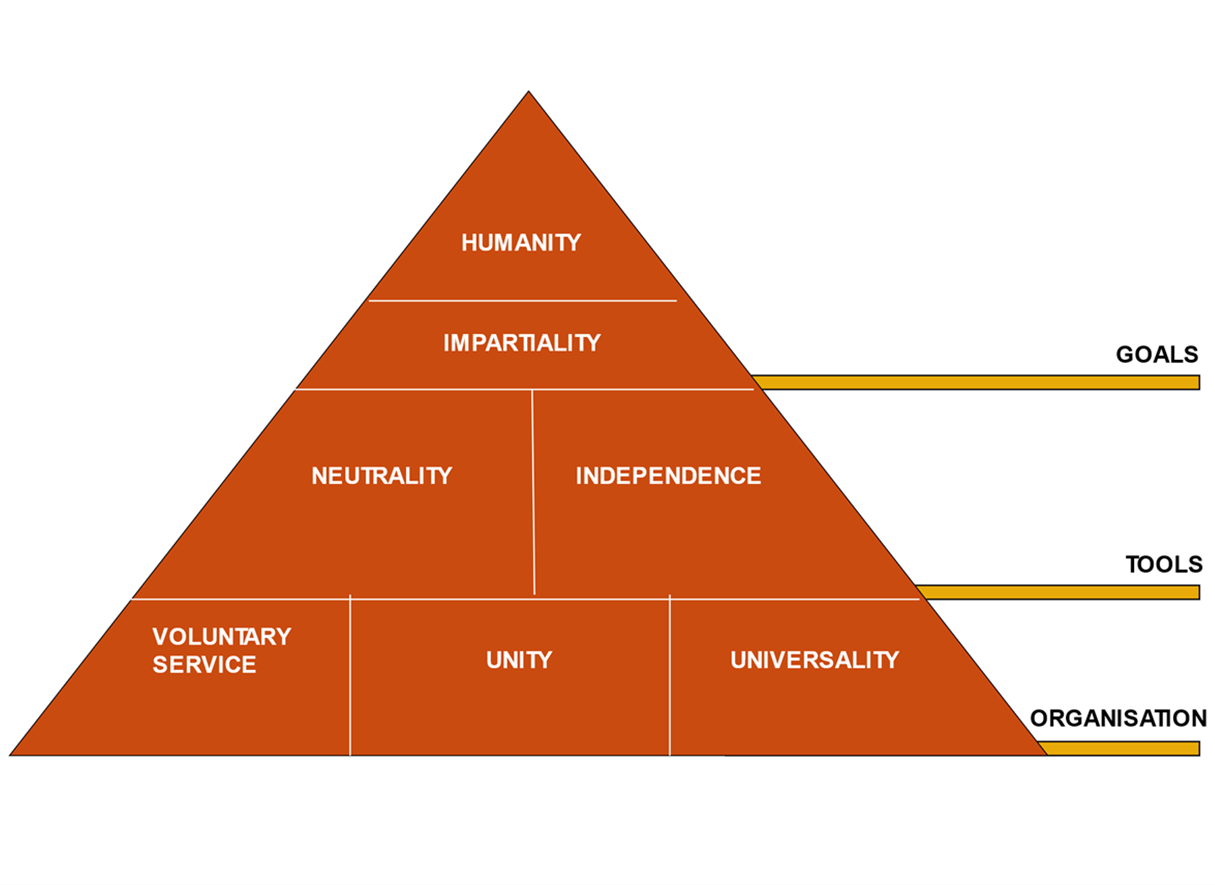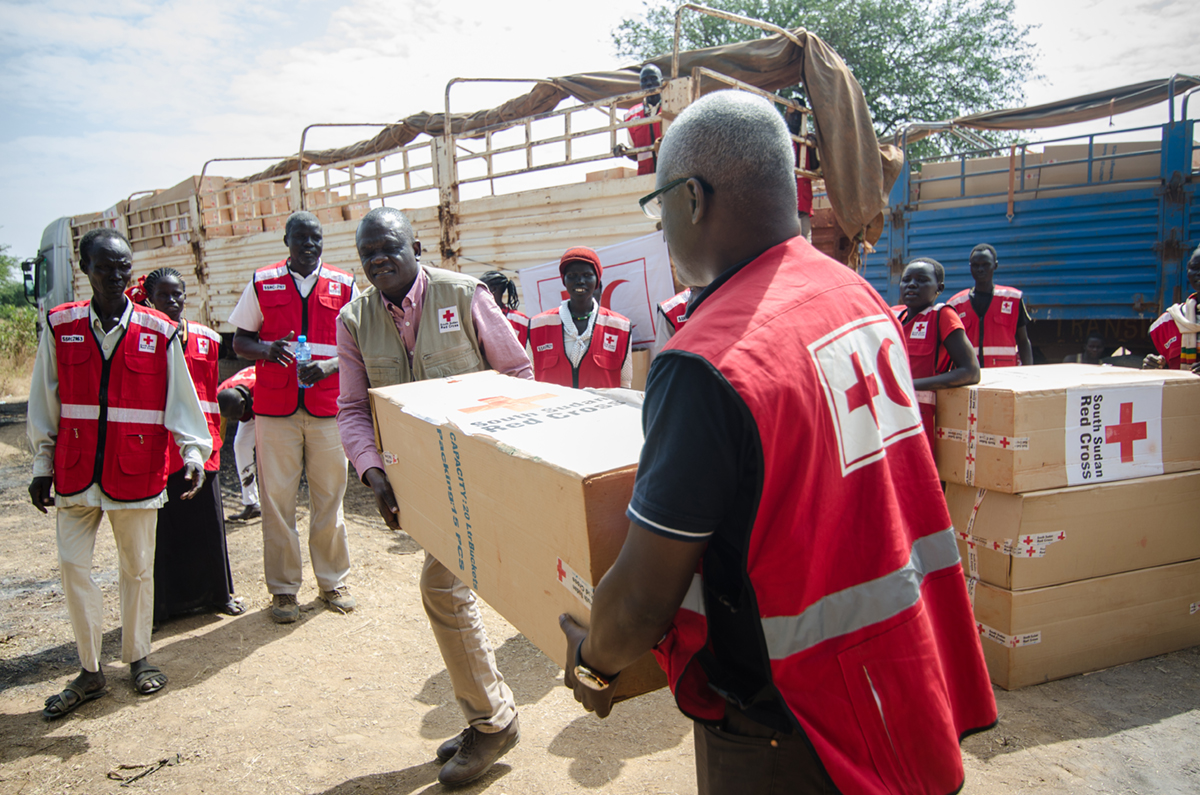Reading time 9 minutes

Universality
The International Red Cross and Red Crescent movements form a global organisation. All national associations are equal and help each other. They share equal responsibilities and obligations to help each other worldwide. They have a universal mission in which the interests of people in need are paramount. This is also reflected in the use of our three emblems that symbolise the unconditional help and protection that the organisation provides to people in the most vulnerable circumstances.
Reading time 9 minutes
You can always come to us
Universality is perhaps the most abstract principle of our organisation. Yet it is at the heart of all our principles and the global movement of the Red Cross and Red Crescent. We have a universal mission, we are there for everyone, in all countries. To fulfil this mission we need to be present throughout the world.
Whether you are a volunteer in the Netherlands, South Africa or Ukraine, all over the world Red Cross workers have the same motive to help all people in need from a humanitarian point of view. But not only that: the associations are equal and help each other.
Same enthusiasm
With the same passion and energy, millions of volunteers provided support during the pandemic, both at home and abroad. The Red Cross, for instance, provided extra hands and protective equipment in doctor Alejandra's hospital in Honduras. Volunteers went out to protect people from infection. They travelled to remote areas throughout the country to explain how people could best protect themselves. In the Netherlands, too, thousands of volunteers were on hand day and night to offer support. And all these aid workers worked according to the same principles. If necessary, they help each other.

Equal approach
Universality is about equality between all associations and about an equal approach on the part of those millions of volunteers worldwide. Some countries do not yet have a National Red Cross or Red Crescent. And some National Societies are not yet recognised as full members of the Movement. This happens once every four years at the International Conference of the Red Cross. The remaining 192 Red Cross Societies are independent from each other, but they are united in what they stand for.
Universality, like voluntarism and unity, is a way of organising ourselves. This means that they have an egalitarian approach to helping people in need everywhere. Jan Tijmen Ninck Blok, senior legal advisor on Humanitarian Law of War at the Red Cross explains: "Human suffering is at the heart of what we do. The Red Cross is there to combat and alleviate it. Suffering is universal, just like the Red Cross and our approach."
The golden rule: the interests of people in need will guide us
Associations worldwide share equal responsibilities and obligations to help each other. Whereby everyone respects that all associations do things slightly differently. Jan Tijmen refers to the pyramid with our basic principles.

"Universality, voluntarism and unity are how we organise ourselves. Neutrality and independence are how we do things. And at the top of the pyramid are humanitarianism and impartiality; those are our goals."
According to him, the same method of organisation should not be taken too literally. The fact that the assistance is equivalent everywhere does not mean that it takes place literally the same way operationally. It is about the basics. That you help a wounded soldier and don't let him suffer from hunger, for example. Subsequently, each organisation can make its own choices as to how to go about this.

Simplicity of the message
The strength of universality probably lies in the simplicity of the message, which is the same worldwide. This simplicity enables associations worldwide, for example, to take action in conflicts and to provide humanitarian aid. Even if the political and military ideas of those in power are of a totally different nature. That is what makes universality such an important principle, according to Jan Tijmen.
This is also reflected in the use of our three emblems. When the Red Cross uses these emblems, this symbolises the unconditional assistance and protection that the organisation offers to people in the most vulnerable circumstances. It has no political or religious significance. It is then up to the National Society to see where our help is most needed.